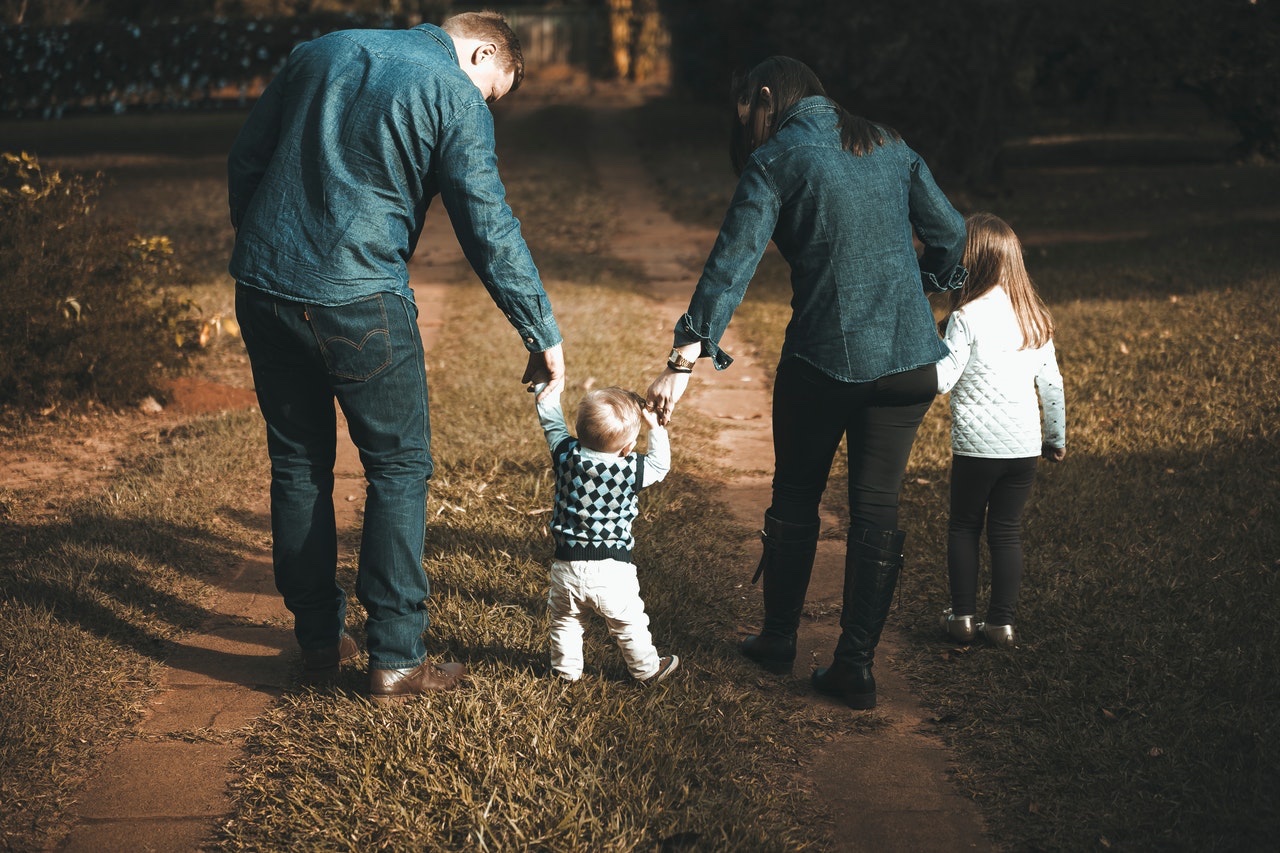Why Am I So Tired?
by Parasol Wellness Collaborative
For the last two weeks I have heard one question more than any other. Whether clients, friends, or family members, over and over again I have heard asked some version of the same question: “why am I so tired?” This question is usually prefaced by the perceived lack of energy each person feels they are expending. Examples include “how can I just sit at home all day and still be so tired?” or “I have so much free time, why am I constantly exhausted?” To understand the answer to these questions, we first need to recognize that the current pandemic, and the resulting quarantine we find ourselves under, is a unique situation that most of us have never faced before in our lifetime and that this situation is a form of community trauma.
Our Brains on Trauma
Deep in the temporal lobe of our brains, just above the brain stem, is a small structure called the amygdala. The amygdala is known as the fear center of our brain. This is the part of our brain that is continually scanning our surroundings and environment for signs of danger and then kicks off the sympathetic nervous system in response to any perceived threats. The sympathetic nervous system directs our body’s response to threat by preparing our body systems to protect us. Our heart rate increases, breathing becomes more rapid, and glucose is dumped into the bloodstream in order to prepare us to stand and fight the threat, or to turn and run to escape from it. This is the response that is commonly known as “fight or flight.” The important thing to know about the amygdala is that it cannot tell the difference between a real or perceived threat. This sympathetic response is automatic, and outside of our voluntary control. This is all well and good when we need quick, temporary protection from a threat, are able to respond, and then are able to engage the parasympathetic nervous system in order to regulate our body systems and regain a sense of calm and safety. When we are living in a state of on-going perceived threat, especially that which is traumatic in nature, our brains have difficulty engaging the parasympathetic response and returning to calm. Think about it this way: the amygdala is like the smoke alarm of your brain. It senses danger, and alerts your body to protect itself from danger. Now, imagine someone has pulled your smoke detector, and it’s gotten stuck in the on position. The alarm tone is blaring, the lights are flashing, and no matter what you try to do to put out the fire, there’s no shutting the thing off. This is your brain under traumatic stress. No wonder you are exhausted; your body has been functioning all day long in fire-fighting, fight or flight mode, and nothing you can do can change this for any significant length of time. What’s worse is, each time your brain is again assaulted by news of the contagiousness of the virus or the rising number of people sick or dying, each time we enter a grocery store and see bare shelves triggering thoughts of scarcity, or hear that there may not be enough masks or ventilators to save lives, our brains are again kicked into high alert. This is the definition of a chronic state of community trauma.
With other community traumas, such as a hurricane or tornado, while the devastation can take time to heal from, the traumatic event itself is generally time-bound. A hurricane hits, causes destruction to a community, and then moves out of the area. While there’s no question the destruction can be significant, and the rebuilding process long, once the hurricane is over residents can turn their focus and efforts to rebuilding. Hope can be restored. In the case of the coronavirus pandemic, however, there is no timeline. We’ve never seen this virus before and have no clear idea about the time it will take for herd immunity to it to be built up, and for our lives to begin to return to some semblance of normal. In this case, the trauma is chronic and on-going. Studies have shown that it is uncertainty that is the most stressful condition under which our body can be. To illustrate this, Harvard researchers measured stress hormones in women waiting on their results, following biopsies of breast lumps, and found that their levels were significantly higher than stress hormone levels of women who were currently living with breast cancer. In other words, the possibility (uncertainty) of a cancer diagnosis is more stressful on our bodies than actually finding out that we have cancer. Again, this is likely due to the fact that once we know, one way or the other, we can shift into action, and into hope. In the case of coronavirus, there is a chance that any of us could contract it. There is a chance that even those of us who are young and healthy could need to be hospitalized, be put on a ventilator, or possibly even die from this virus. Constantly contemplating these outcomes is an incredibly uncertain and, thus, stressful state for our bodies to function in. Again, not necessarily conditions conducive to feeling well-rested, even when we are spending lots of extra time on the couch.
As If the Trauma Weren’t Enough
There has also been another theme among my therapy sessions the last two weeks, and it involves the sudden and collective loss of our “normal.” In a matter of days, our lives went from ordinary to turned upside down. We are now social distancing, we’re unable to visit with or see friends and family, our gyms and salons and favorite restaurants are closed, we’re working from home or losing our jobs, and we’re now guiding our children’s distance learning. The feelings that we feel as we navigate this new world – anger, frustration, exhaustion, confusion, depression, anxiety, to name a few – all fall under the umbrella of grief. We are collectively grieving the loss of what used to be and what should have been. Seniors are missing their graduations, couples are postponing their weddings, babies are being born to parents who must take them home and quarantine from the family and friends who would otherwise have come to shower the new family with visits and meals and support. We’re all missing and longing for a different time, just as we would mourn for a loved one who had passed. We know that grief can take a huge emotional toll, and wear us down physically and mentally, and it is no different when we are grieving the loss of our own freedoms and way of life.
A Note About Feelings
Given the novelty of the current pandemic, it is easy to understand that we may be feeling nervous or frustrated. We don’t know who will eventually contract the virus, and we don’t know how long it will last. During this time, we may also begin noticing other changes as well. It is not unusual during periods of traumatic stress, for example, to be more irritable than usual, to feel more anxious or depressed, or to feel an aversion to physical touch or closeness that is a change from ordinary. And what about joy? Excitement? Relief? Gratitude? These feelings appear so much at odds with current events and, yet, it is not uncommon for those enduring traumatic stress to experience a range of seemingly conflicting feelings. Joy at additional time spent with family – albeit in quarantine – excitement about watching a child learn something new under our new role as teacher, relief about not having to commute an hour to work each day, and the gratitude that comes from reflecting on our priorities and recognizing that we actually need much less to live a fulfilled life than we ever imagined? All of these emotions are normal and common, even during times of crisis. Feeling more emotional and crying about everything, or crying about nothing at all? Normal. Feeling overwhelmed at balancing all of your roles, all at once, from home? Normal. Feeling like you can’t wait to get out of quarantine and meet your friends for happy hour and also feeling like you cannot talk to one more person today? Normal. Feeling like you want to cook, should be eating, and also don’t have a bit of an appetite? All completely normal.
And while we’re talking about these shifting, conflicting, totally normal emotions, it is worth mentioning that it’s not just us, but our partners, our children, other family members we may be quarantined with, and our community at large are also feeling these same emotions. Managing all of these emotions, and managing our relationships in the context of these emotions, sheds a lot of light on why we are all just so damn tired.
So What Now?
A significant trend at the end of 2019 was to pick your word. The word that would define you and guide you, and set the course for your new year in 2020. While I didn’t pick a word then, if you were to ask me to pick a word now it would, without question, be grace. When we are living in a state of chronic trauma and grief, the only way through is grace. We are not – and cannot, by definition – functioning at our peak when we are facing traumatic stress. When our fight or flight is engaged, energy is diverted away from all non-critical body systems. Patience, critical and abstract thinking, concentration, all become non-essential when we are fighting for our survival. So no, we cannot expect ourselves to function optimally during this time. Recognizing that, and giving ourselves grace in our self-talk about our perceived under-performance or our lack of energy and motivation, is the key to surviving.
During times of survival, our expectations for ourselves and our families must be lowered. While Pinterest and Twitter may suggest this is the time to finally write your manuscript or learn to cook gourmet meals, I am here to tell you that this is not just “free time,” and that there is absolutely nothing wrong with you if you can’t muster up the energy to microwave a bag of popcorn for dinner, much less cook a three course meal. Grace becomes our ticket to freeing ourselves from the societally-imposed guilt trap of productivity expectations.
There are many great articles circulating the internet right now about coping with the pandemic, so I won’t go into that here. But I will say that at the essential core of coping and self-care during this time is simply remembering to focus on grace and self-compassion as you navigate this unprecedented time. Take a walk, take a bath, take a nap, take deep breaths, ask for help, help where you can, and know that whatever you are feeling is completely normal, and whatever you need to do to love on and care for you during this time is okay. No guilt, only grace, as we walk this uncharted territory together.
Click HERE to see the original article posted on parasolwellness.com.



